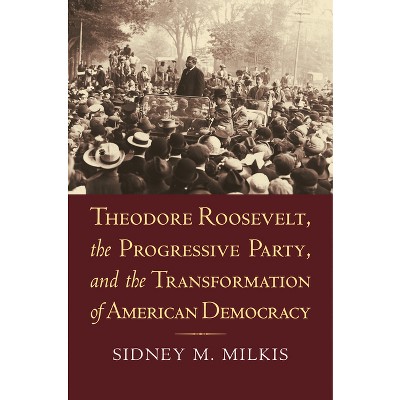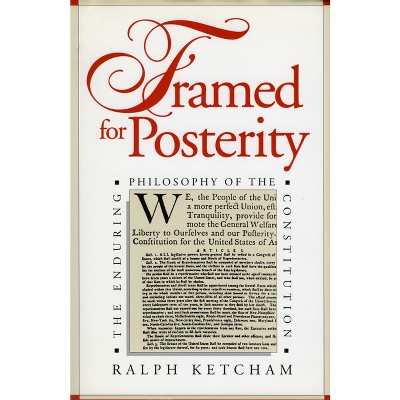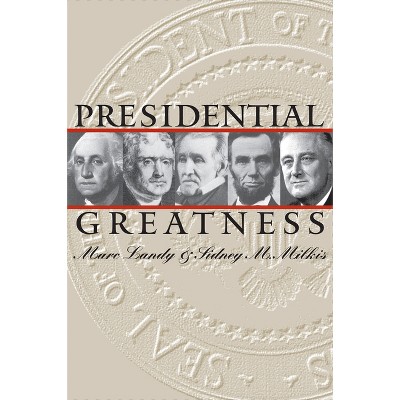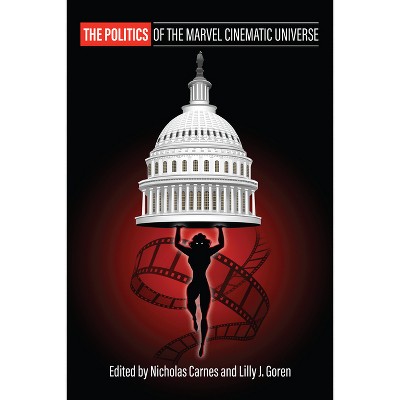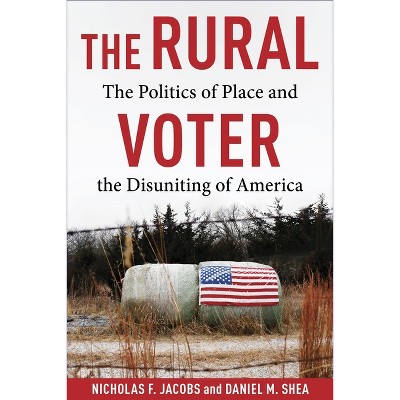Sponsored

Subverting the Republic - by Nicholas Jacobs & Sidney M Milkis
In Stock
Sponsored
About this item
Highlights
- From two expert presidential scholars comes a new answer to why the Trump presidency happened: decades of partisanship and policies have centered the president as the sole focus of American government to create a treacherous system whose danger may far outlive the politics of Donald J. TrumpDonald Trump∍s presidency and the extraordinary events that led to his reelection in 2024 have changed how we understand the presidency--but this transformation was not of his own making.
- Author(s): Nicholas Jacobs & Sidney M Milkis
- 328 Pages
- Political Science, American Government
Description
About the Book
Decades of partisanship and policies have centered the president as the sole focus of American government to create a treacherous system whose danger may far outlive the politics of Donald J. Trump.
Book Synopsis
From two expert presidential scholars comes a new answer to why the Trump presidency happened: decades of partisanship and policies have centered the president as the sole focus of American government to create a treacherous system whose danger may far outlive the politics of Donald J. Trump
Donald Trump∍s presidency and the extraordinary events that led to his reelection in 2024 have changed how we understand the presidency--but this transformation was not of his own making. His unprecedented rise to power brazenly defies established constitutional norms and institutions, and Trump 2.0 promises another disruptive term. Yet, as Nicholas F. Jacobs and Sidney M. Milkis reveal, Trump's brand of presidential politics is not merely a shocking departure from tradition, but a symptom of a constitutional disease that had has long afflicted the American polity. They call this condition presidentialism, a dangerous shift towards an executive-centered politics and government that places immense power in the hands of a single individual.
While some scholars of American politics view the Trump presidency as a cult of personality, Jacobs and Milkis argue that his unsettling ascent to the White House was decades in the making, the result of numerous cultural, institutional, and constitutional changes. From aggressively redeploying the federal government's administrative powers, to using the tools of the modern presidency to undertake a hostile takeover of the Republican Party, the authors comprehensively detail Trump's first presidential administration to understand the peril of a presidency-centered democracy. The disruptive features of Trump's presidential politics should not be viewed as an ephemeral phenomenon, nor will the threat that presidentialism poses to American democracy end once he finally leaves office.
Subverting the Republic explains why Trump has reigned over American politics for nearly a decade and why his mastery threatens to deepen a crisis that tears at the fabric of the American constitution.
Review Quotes
"Jacobs and Milkis convincingly place Donald Trump's hostile takeover of American politics in historical and institutional context. They go beyond a simple indictment of Trump's overreach to adroitly analyze the broader evolution--and dangers--of a 'presidency-centered democracy' that both drives and feeds on partisan polarization. In depressingly timely fashion they remind us that the displacement of collective deliberation by blind reliance on unilateralism betrays our constitutional ideals."--Andrew Rudalevige, coeditor of The Obama Legacy
"Jacobs and Milkis have provided a thorough accounting of the Trump presidency that places it in historical and institutional context. They identify how 'executive-centered partisanship, ' the result of institutional changes across the presidency and the party system, have created opportunities for Trump, while also delineating how these structures have influenced other presidents and the broader political system. This is a highly informative and theoretically robust book."--Julia Azari, author of Delivering the People's Message: The Changing Politics of the Presidential Mandate
"This meticulously researched study presents an instructive critique of the expansion of executive power in the modern presidency. The authors situate the Trump presidency in a longstanding evolution of executive-centered party governance, which they argue is antithetical to American democracy. Their argument that stronger institutional leadership to counter presidential power is needed to preserve the constitutional system of checks and balances is essential reading for scholars of the presidency and American politics."--Meena Bose, author of Pragmatic Vision: Obama and the Enactment of the Affordable Care Act
"Subverting the Republic is an expertly crafted analysis of the Trump administration and its legacy. Nicholas F. Jacobs and Sidney M. Milkis argue persuasively that the dangerous trend of 'executive-centered partisanship' hit new heights under Trump, and they explore its lingering effects on American democracy. This deeply researched and engagingly written collaboration is a must-read for scholars and the general public alike."--Jeffrey Crouch, author of The Presidential Pardon Power, coauthor of The Unitary Executive Theory: A Danger to Constitutional Government and Newt Gingrich: The Rise and Fall of a Party Entrepreneu
"Jacobs and Milkis describe how Donald Trump's presidency was constructed on the foundation that Franklin D. Roosevelt built. Not in terms of policy--of course--but on the premise of an executive-centered presidency that began with FDR and has been accepted and extended by his successors. Jacobs and Milkis forcefully argue that Donald Trump wasn't just an aberration but an extension of a revamped presidency that began decades before. A must-addition to the literature on the Trump presidency."--John Kenneth White, author of Grand Old Unraveling: The Republican Party, Donald Trump, and the Rise of Authoritarianism
"Jacobs and Milkis's latest book is a timely and important work that not only provides a detailed and thorough assessment of the Trump presidency but also seeks to diagnose the greater systemic challenges facing modern presidential politics. It is a must-read book for anyone who seeks to understand presidential behavior and contemporary politics."--Mitchel A. Sollenberger, coauthor of The Unitary Executive Theory: A Danger to Constitutional Government
"The authors of this excellent book move beyond the blame game to take a deeper dive into the "perils of presidentialism" in America, arguing that Trump is more symptom than cause, and that we have for too long neglected the consequences of the "institutional disease" that is at the root of our political ills. A masterpiece in scholarship, this book is an instant classic. Essential."--Choice


